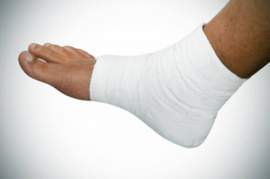
Getting a Personal Injury From Dangerous Activities

Popular In Personal Injury
Damages Compensation Personal Injury Settlement Calculator Proximate Cause Personal Injury Lawsuit Injury Examples Of Personal Injury Cases Personal Injury Settlement Personal Injury Lawyer How To File A Personal Injury Accident Claim Personal Injury Protection Pip Personal Injury Law Firm
A personal injury accident that results from an abnormally dangerous activity will be treated differently than one that results from pure accident. The defendant who is at fault for the plaintiff's injury is generally responsible because of one of two types of action: an intentional tort or negligence. An intentional tort occurs when a defendant's actions are done purposely and with the intent to injure. Negligence, on the other hand, usually results from a lack of reasonable care.
In these cases, if it can be proven that the defendant's action caused injury to the plaintiff, then he or she will be liable for the personal injury accident. Damages will include reimbursement for medical bills, lost wages, pain and suffering, etc. However, there are certain conditions in which a party's actions are subject to strict liability. Strict liability is often referred to as liability without fault. In this case a plaintiff in a personal injury accident suit will not be required to prove any intent or failure of care on the part of the defendant. Contact a personal injury lawyer to consult your case.
Certain situations will prove to be so inherently dangerous that, regardless of the amount of care taken, it will be expected that injury is a very probable consequence. For example, the use of explosives or setting off fireworks, is considered to be a dangerous task , and therefore, the party involved will be responsible for injury. This can work against either the plaintiff or the defendant.
If the plaintiff who sustains a personal injury accident may be barred from recovery by placing him or herself in the dangerous situation. For example, if a neighbor is setting off fireworks, and the plaintiff is clearly standing too close to the fireworks, he or she will probably not receive compensation in a personal injury accident case. Similarly, if the defendant is setting off fireworks and one of these fireworks accidentally lands in the neighbor's property, injuring a plaintiff, the defendant will be held responsible regardless of the amount of care he or she attempted to exercise.
Dangerous activities in a personal injury accident will also involve housing wild animals or toxic material. These are both activities considered to be so dangerous, that it will result in strict liability in the event of a personal injury accident law suit. Again, this will be the case regardless of the amount of care exercised by the defendant. There are specific classes of animals that are considered to be incapable of being domesticated and tamed. If the defendant is housing one of these animals, and it injures a plaintiff, the plaintiff is eligible for compensation.
NEXT: Handling Personal Injury Cases From Natural Disasters





















